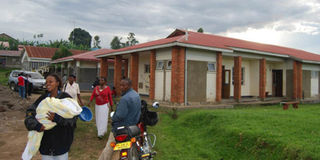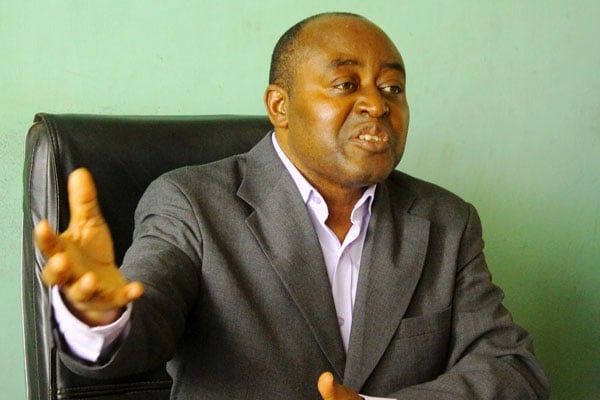Ntungamo health workers desert duty stations - report

A woman leaves Rubirizi Health Centre IV after delivery last November. Many health centres in Ntungamo District are understaffed. PHOTO BY FELIX AINEBYOONA
Ntungamo- Many health workers in Ntungamo District are deserting their work stations due to poor working conditions, statistics show.
The poor working conditions range from poor remuneration to poor accommodation.
The District Health Officer, Dr Richard Bakamuturaki, says whereas they have more than 65 per cent health workers on the payroll, less than 40 per cent are on the ground, hampering the extension of better health services.
“We have had serious challenges with recruitment and retention of health workers. Most health units are incomplete and attracting better medical staff requires special incentives to keep them here,” he says.
Dr Bakamuturaki adds that most health units have less than 20 per cent of staff yet they receive hundreds of patients on a daily basis.
“The ministry says it cannot recruit more health workers because we have hit the wage bill ceiling,” he says.
Dr Bakamuturaki says most health workers trek long distances to access their work places in many hard-to-reach health centres, which discourages them.
The district has 43 health units; a hospital, three health centre IVs, 12 health centre IIIs and 27 health centre IIs. There are other seven non-functional health units constructed by the district that were never accredited by Ministry of Health.
Dr Bakamuturaki says the district, with a population of about 50,0000 people, 27 sub-counties and 12 town councils, deserves more health workers.
The chairperson of the village health teams in Nyakyera Sub-county, Ms Lydia Bakunda, says patients in rural areas have suffered most since they cannot easily access health units, which are a distance of more than 10kms from their homes.
The long distance to health centres has also crippled government programmes such as immunisation and extension of HIV/Aids services.
For instance Ngoma Health Centre II has only two medical workers attending to more than 500 patients daily. The Resident District Commissioner, Mr George Bakunda, appeals to government to address the medical workers’ concerns as a way of restoring citizens’ confidence in the government.
He also says ghost employees in the system must be eliminated.
Residents also call for more outreaches. The district chairperson, Mr Denis Singahache, says with the government moving to phase out health centre IIs, residents will now face the very serious challenges in accessing health services.
Ms Josephine Kiconco, the regional coordinator of PATH Uganda, a health NGO, says as the citizens demand for better services, they should also assume their responsibilities in the healthcare delivery system such as primary health care, immunisation and sanitation.



